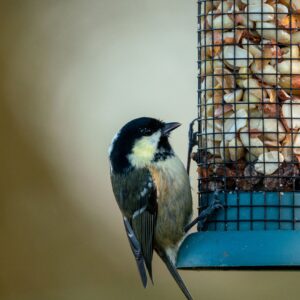Environmental Groups Welcome the Launch of Canada’s Strategy to Save Nature
June 13, 2024, traditional unceded Algonquin Territory/Ottawa, Ontario – Canada’s plan to save nature, titled “Canada’s 2030 Nature Strategy: Halting and Reversing Biodiversity Loss in Canada,” was released today by the federal government, and includes a suite of recommended actions that, if effectively implemented, will help address the biodiversity crisis and give nature a chance to recover and restore in Canada.
Groups welcome the strong focus on Indigenous-led conservation in the Strategy, and the recommitment to the Kunming-Montreal Global Biodiversity Framework. However, unless new federal funding is allocated for implementation, the action needed to turn the strategy into meaningful protection cannot be realized. Groups are urging the Prime Minister and Minister of Finance to announce funding for all identified actions at, or prior to, COP 16, to be held in Colombia in October.
Earlier this year, twenty notable Canadian environmental groups jointly submitted recommendations for a strategy to save nature.1 While a number of these recommendations are referenced, most are identified as “additional opportunities” the government may explore, versus actions they will take. Groups note that some important elements are missing such as the lack of important actions on pollution, and biodiversity loss in managed forests, from the Strategy for land, freshwater and ocean that was just released.
The Strategy was released in tandem with the tabling of Bill C-73, the Nature Accountability Act, which is also appreciated as a positive step towards ensuring Canada delivers on its nature commitments, although experts say that it will require strengthening to guarantee results. Together, both mechanisms could serve as effective tools to help Canada halt and reverse nature loss. Environmental groups are pleased to see these key steps brought to life; but remain concerned that without new funding and a stronger accountability law, the required actions cannot be delivered. Groups will be eagerly tracking announcements by decision makers on funding and work to bolster Bill C-73 leading up to COP 16.
Background
- Biodiversity loss and ecosystem collapse is one of the most urgent threats facing our country, according to a new Government of Canada report released last month. The report warns that failure to address the crisis is putting our supply of clean air, water and food and the health and well-being of all Canadians in jeopardy, and, if not addressed, will lead to major economic losses and instability.
- Canada’s 2030 Nature Strategy emerges from COP 15, a global biodiversity conference held in Montreal in December 2022 where Canada’s leaders played a critical role in landing a historic global agreement to reverse the on-going collapse of nature: the Kunming-Montreal Global Biodiversity Framework (GBF). Adopted by 196 countries, the framework includes commitments to a comprehensive suite of actions to stop nature loss. A global plan, however, is only as good as its implementation at home.
- Countries are required to develop a National Biodiversity Strategy and Action Plan before this fall’s follow-up global meeting in Colombia.
- While Environment and Climate Change Canada (ECCC) is responsible for leading the development of the NBSAP, a whole-of-government approach is required to fully implement the GBF.
- For years, scientists have been raising the alarm about our on-going destruction of nature, made worse by the growing climate crisis. Never before has there been such an obvious need for action or such a big opportunity to get on track towards a better future for generations to come. An ambitious, well-funded National Biodiversity Strategy would be one step towards this better path.
Birds Canada, Canadian Parks and Wilderness Society (CPAWS), David Suzuki Foundation, Ecology Action Centre, Nature Canada, Nature Trust of New Brunswick, SeaBlue Coalition Canada, the ChariTree Foundation, Yellowstone to Yukon Conservation Initiative
– 30 –
For more information, please contact:
LeaAnne Ross, VP Communications and Engagement
Birds Canada
laross@birdscanada.org
Jenn Brown, National Associate Director, Communications
Canadian Parks and Wilderness Society (CPAWS)
jbrown@cpaws.org
416-389-6668
Brandon Wei, Communications Specialist
David Suzuki Foundation
bwei@davidsuzuki.org
778-772-6138
Scott Mullenix, Communications Director
Nature Canada
media@naturecanada.ca
613-562-3447
Andrea Koehle Jones, Executive Director
The ChariTree Foundation
info@charitree-foundation.org
Kelly Zenkewich, Communications and Digital Engagement Manager
Yellowstone to Yukon Conservation Initiative
kelly@y2y.net
403-609-2666 x126
Jennifer Josenhans, National Director
SeaBlue Canada Coalition
jjosenhans@oceansnorth.ca
902-275-8077
1 For details, see the Joint Environmental Organization input to Canada’s National Biodiversity and Action Plan: Response to the Milestone Document (Feb 9, 2024) in English or French.



